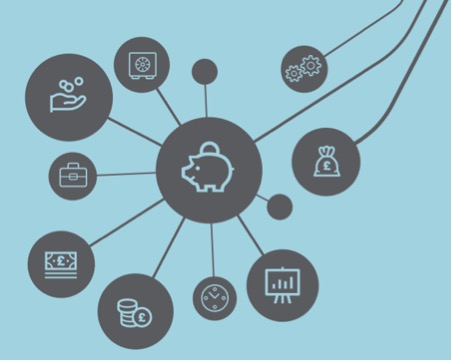What to consider in a financial wellbeing platform
New platforms coming into the employee benefits marketplace are rapidly changing the way employers are helping staff manage their financial wellbeing.
When it comes to employee wellbeing, financial wellbeing is the final frontier to see improvements. Physical and mental health have been addressed in various ways, but employers have yet to come up with, and put to work, effective financial wellbeing measures.
When talking about ‘financial wellbeing’ we mean a state someone is in when they have control over their financial lives. As such, financial wellbeing coincides with financial resilience and the ability to comfortably manage one’s finances.
More specifically, being able to manage one’s finances means that someone is satisfied with their ability to save, manage their cost of living, and make their salary last until the end of the month.
In addition, there are some essentials to enable employees to handle life’s financial ups and downs. For example, having a savings buffer could play a significant role in achieving financial peace of mind. Barclays research, Financial Wellbeing, The Last Taboo (published May 2014), shows that if employees have less than three month’s salary savings as a buffer, then they are prone to financial distress. This distress affects their personal life, their work-life as well as their IQ in extreme cases.
It affects their mental health because of the constant strain of worrying about their finances. And it is important to note that distress could have significant effects on an employee’s personal life and relationships as well.
Moreover, this distress affects their work and livelihood because it has the potential to affect productivity, as well as morale. Under this strain, employees are more likely to be absent from work and can be prone to unsafe practices at work.

The business benefits of financial wellbeing
The reason that employers should get involved in offering financial wellbeing tools to staff is: it is about doing right by their employees.
If an employer knows it has the capacity, and the platform, to provide a benefit to give employees a better chance of controlling their finances, and a better chance of becoming financially resilient, then it is something a responsible employer should do.
It is about taking that extra step to increase engagement with your employee, to bolster that relationship between that employer and employee, and to foster increased loyalty with the employee.
As a byproduct, when ticking that corporate social responsibility box for which employers are already setting aside a budget, they are also addressing the tangible costs of financial distress. The aforementioned Barclays research estimated that financial distress equates to 4% of a company’s bottom line. This is tied to: higher absenteeism, lower productivity, higher potential for fraud and theft, and associated higher staff turnover.
For employers looking to stand apart from the pack within a given industry, a financial wellbeing solution could also work towards branding them as more attractive, and possibly bring down talent acquisition costs.
There is an initial aversion to employers being involved in an employee’s finances. Employers have an apprehension of coming across as paternalistic or Big Brother-ish. Our view at Squirrel is that a platform is not paternalistic if the controls lie in the hands of employees in terms of how they put it to use and how they customise it for their own needs.
Confidentiality is also a very important factor to both employers and employees, and it is important for providers to ensure that employee information is only accessible on an anonymised basis. All information that makes it back the employer must be done so on an aggregated and anonymised basis, with the goal of measuring the efficacy of a particular solution as opposed to monitoring employees’ spending habits. THE
The importance of Trust
Trust needs to be developed by service providers as well as establishing a solid reputation with end users. This is to ensure that employees are comfortable using and extracting the greatest value from a service provider’s offering via any media that is available: mobile, laptop or tablet. And that is the challenge for any provider: how to build trust through a scalable process that combines a simple and user-friendly offering via these media while truly addressing a client’s needs.
It is important to understand that building trust is synonymous with embodying the right combination of credibility, reliability, approachability and, more importantly, a true understanding of a user’s needs.
The process of building trust will differ from provider to provider and increasing importance will be placed on each of the aforementioned factors through adjusting levers tied to the transparency of the value proposition, simplicity of the user interface and the right level of human interaction. It is a process that needs to be tested, and should not be taken lightly.
What the future brings
In the future, we will see more benefits options that can be tailored to employees’ specific needs. Providers will work with the employees themselves to develop products around their requirements, as opposed to pushing products at them.
This will be important as we see the effect of five generations in the workplace and the increased lifespan of workers. The effect of an ageing workforce on offerings in the future will be the need for service providers to become more conscious of how the needs of the workforce shift over time. They will need to move away from ‘one-size-fits-all’ solutions.
Employees nearing retirement will need stability in terms of what finances they are going to need post-retirement. This need differs from that of recent graduates taking on their first job out of college who may need a platform to help them take control of their finances for the first time. It is different again for people in the middle stage of their lives where they may be looking to establish a family or buy a house.
Mutaz Qubbaj, is the CEO and co-founder of Squirrel, the financial wellbeing platform
This article was provided by Personal Group
In partnership with Personal Group
Personal Group provides the latest employee benefits and wellbeing products.







